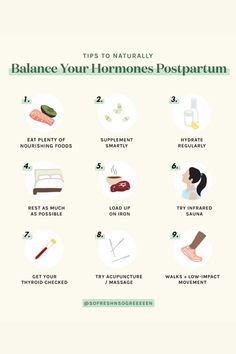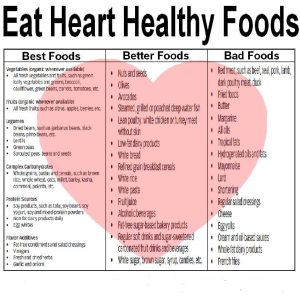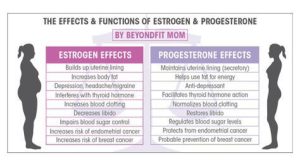
Women’s hormonal balance is important for overall health and well-being. Hormones play a vital role in regulating various bodily functions, including metabolism, mood, reproductive health, and more. Maintaining hormonal balance is key to managing PMS symptoms, fertility, menopause, and overall vitality. In addition to medical advice, adopting a healthy lifestyle and incorporating certain nutritional tips can greatly support hormonal balance. Here are 15 important tips that women should consider:
1. Eat a Balanced Diet
A balanced diet is crucial for maintaining hormonal balance. Include a variety of nutritious foods such as fruits, vegetables, whole grains, lean proteins, and healthy fats. Such a diet provides essential nutrients required for hormone production, metabolism, and overall well-being.
2. Prioritize Healthy Fats
Including healthy fats like avocados, nuts, seeds, and olive oil in your diet can support hormonal health. These fats are important for hormone production and absorption, and can also reduce inflammation and promote brain health.
3. Opt for Complex Carbohydrates
Choose complex carbohydrates like whole grains, legumes, and vegetables over simple carbohydrates. Complex carbohydrates provide a steady release of energy, regulate blood sugar levels, and prevent hormonal imbalances caused by insulin spikes.
4. Include Phytoestrogens
Phytoestrogens are plant compounds that mimic estrogen in the body. Foods rich in phytoestrogens such as soy products, flaxseeds, and lentils can help balance hormone levels, especially during menopause.
5. Get Enough Protein
Protein is crucial for hormone synthesis and maintenance. Include lean protein sources like poultry, fish, beans, and tofu in your meals. This will provide the amino acids required for hormone production and support healthy cellular function.
6. Ensure Sufficient Omega-3 Fatty Acids
Omega-3 fatty acids are known for their anti-inflammatory properties and play a crucial role in hormonal balance. Include fatty fish (like salmon and sardines), walnuts, chia seeds, and flaxseeds in your diet to obtain these essential fatty acids.
7. Limit Caffeine Intake
Consuming excessive caffeine can disrupt hormonal balance, especially related to cortisol and adrenaline. Limit your intake of coffee, tea, and caffeinated beverages, and opt for herbal teas, decaf coffee, or other non-caffeinated alternatives.
8. Stay Hydrated
Proper hydration is essential for maintaining hormonal balance. Make sure to drink enough water throughout the day to help flush out toxins and support the optimal functioning of your body’s hormonal systems.
9. Consume Foods Rich in Vitamin D
Vitamin D deficiency has been linked to hormonal imbalances in women. Spend time outdoors in the sunlight, and consume foods rich in vitamin D such as fatty fish, fortified dairy products, and egg yolks.
10. Reduce Sugar and Processed Food Intake
Consuming excessive sugar and processed foods can lead to hormonal imbalances and inflammation. Try to limit your intake of sugary treats, sodas, fast food, and processed snacks. Opt for whole foods instead.
11. Practice Mindful Eating
Engaging in mindful eating practices can support hormonal balance. Slow down, savor your meals, and pay attention to your body’s hunger and satiety cues. This can help prevent overeating and promote a healthier hormonal environment.
12. Manage Stress Levels
Chronic stress can interfere with hormonal balance. Engage in stress-management techniques such as yoga, meditation, deep breathing exercises, and regular physical activity to reduce stress and promote hormonal harmony.
13. Keep Alcohol Consumption in Check
Excessive alcohol consumption can disrupt hormonal balance, especially affecting estrogen levels. Limit your alcohol intake to support your body’s hormonal health.
14. Get Sufficient Sleep
Adequate sleep is crucial for hormonal balance. Strive to get 7-8 hours of quality sleep each night to support the proper functioning of your body’s hormone regulation systems.
15. Consult a Healthcare Professional
If you are experiencing persistent hormonal imbalances or difficulties, it is important to consult with a healthcare professional. They can provide personalized advice and guidance tailored to your specific needs.
Conclusion
Supporting hormonal balance is essential for women’s overall well-being. By adopting a nutritious diet, staying active, managing stress, and incorporating these 15 nutritional tips, women can optimize their hormonal health and enjoy a better quality of life.

